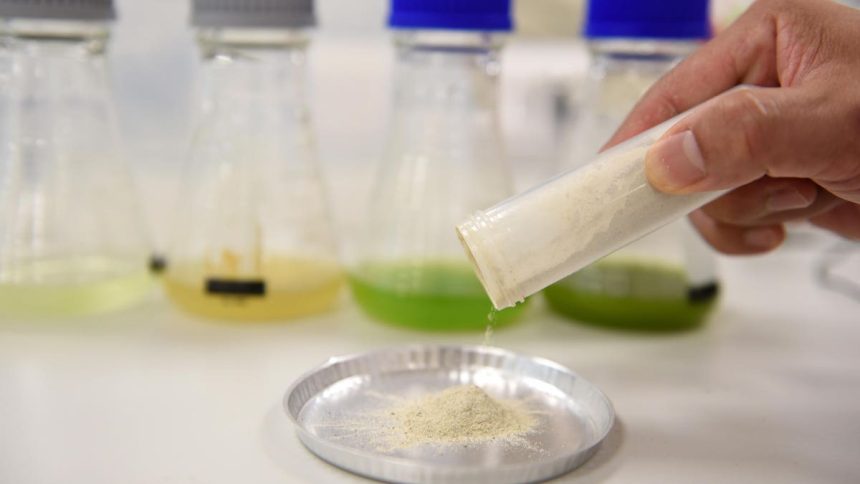By Benjamin Raziel
U.S. regulators approved the sale of cultured meat to consumers for the first time in June, opening the floodgates to a new era in which your steak or chicken breast may be grown by dividing cells in a lab instead of raising an animal on a farm. The innovation presents a unique business opportunity for one Israel-based company, Pluri, Inc., which is taking the meat-growing process outside of a basic bioreactor — making the process more economical and sustainable.
Right now, the announcement means that eight guests per week can receive a 3.5-ounce portion at a single restaurant in the country.
Even in Singapore, where cultivated meat has been approved for human consumption for two years, there is still only one store where the product is available – with enough product to sell six servings a week.
And while companies are making progress on costs, prices are still higher than a normal market will bear: $14 for a single cultivated chicken meal, for example, while boneless chicken breast in a regular market sell for as little as $4 per pound.
The opportunity presented by cultured meat could have an outsize impact as part of a strategy to counter climate change. The meat industry contributes an estimated 30% of the world’s greenhouse gases, according to a recent UN report.
Following the USDA approval of a cultured meat product for human consumption, the biggest roadblock remaining to bringing the innovation to market is production.
Until now, no company has been able to demonstrate a cost-effective process for mass producing cultured meat in a factory. More than 100 companies are working on cultivated meat, but most use stir-tank bioreactors, which require huge amounts of costly steel to build (and are rougher on cells). These companies would need to build massive, expensive facilities – and they still wouldn’t produce enough.
A tissue-like scaffold in a packed bed reactor, on the other hand, while not the most common way to culture biological agents, may prove to be the technique that moves cultured meat from lab sample to supermarket stores. A packed-bed reactor can produce 40B cells in a 14-liter volume while typical stirred tank bioreactors need a 150-200-liter volume to do so.
One innovator in this space has proposed to take this method a step further by taking the cells outside of the bioreactor altogether.
Last year, Pluri, Inc. (Nasdaq: PLUR), a biotech company based in Israel, spun off a food production unit now called Ever After, in a deal with Tnuva, Israel’s largest food distributor. Ever After has an exclusive license to harness Pluri’s technology – which was developed over two decades for pharmaceutical purposes – to create cultured meat.
Ever After expects the system, called PluriMatrix, “to lead to a 700% increase in productivity over other cultivated meat technology platforms,” according to Pluri CTO Lior Raviv.
Pluri decouples their scaffolds from the bioreactor, and then harvests them in special bags installed in protective frames that can be stored in archive-fashion, in parallel banks. Think of the archive stacks at a library, stored in collapsed shelving systems that expand at the turn of a wheel.
The system also enables the simultaneous expansion of various cell types within the same platform, giving each cell type its own growth space.
Pluri believes that their approach will be the path for overcoming the conclusions of some scientists that the economics of cultivated meat will never make sense.
“A basic bioreactor is tech that’s decades old. And bigger ones, like the 10,000-liter ones some companies are building, are not a solution,” says Pluri CEO Yaky Yanay. “To scale, we must shrink. Disruptive technology, that reduces production space while increasing production capacity, is the only way we’ll ever produce enough meat to feed people, at a price point that works.”
Pluri has said that this technology will be applicable for beyond the field of cultivated meat. They believe that scalable allogenic cell growth process would be a boon to pharma, biologics, agri-tech and other industries, providing unique control, batch-to-batch consistency, and cost effectiveness at industrial production levels.
The world needs flexible, industrial-scale cell production to solve some of its most pressing problems: an aging population, unsustainable farming practices, rising greenhouse gas emissions, and vulnerable food distribution systems. The race to manufacture at scale could lead to greater global wellbeing – both for the planet and for humankind – than the world has ever known.
Read the full article here









